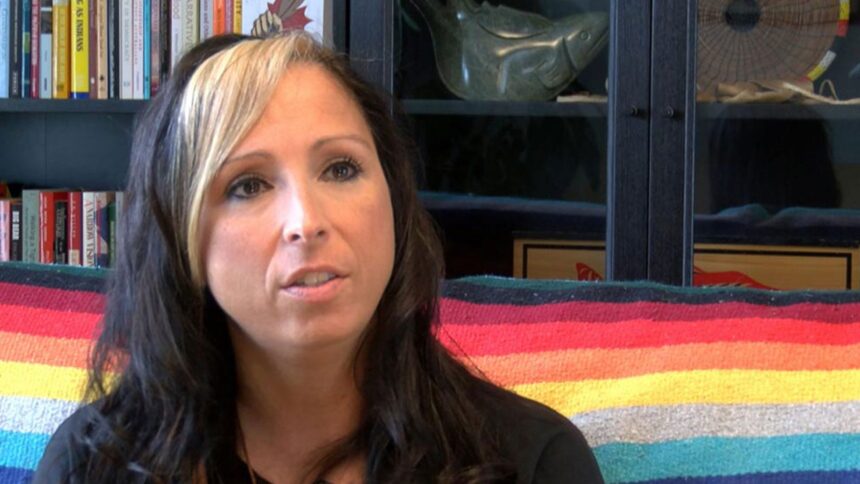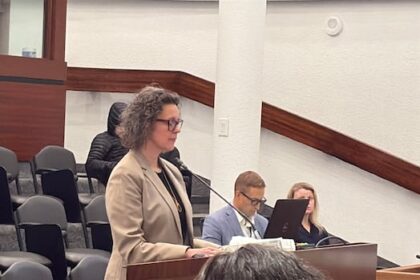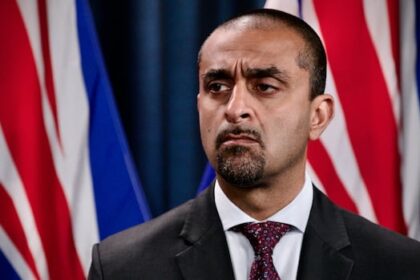A Toronto Metropolitan University Mi’kmaw professor says the 2025 Conservative Party election platform offers little that’s new when it comes to Indigenous priorities. “This is really just kind of a repackaged Harper-era (Stephen, former Conservative prime minister) scenario,” Pam Palmater said. “We know under the Harper regime they were very close with the First Nations Tax Commission. Anything that can kind of put power back in the First Nations Tax Commission which is all about taxation on reserve, privatization of reserves. So, not surprised to see that at all. Almost the entire focus is on resource extraction.” The Conservative platform, which was released earlier this week, makes no mention of the United Nations Declaration on the Rights of Indigenous People or the final reports of the Truth and Reconciliation Commission and National Inquiry on Missing and Murdered Indigenous Women and Girls. The document does say a Conservative government would create something called a First Nations Resource Charge that would serve as a refundable tax credit of 50 per cent to businesses who have made contributions to First Nations for resource wealth and commercial housing. There is also mention of establishing a Canadian Indigenous Opportunities Corporation to provide Indigenous people shared equity in resource and industrial projects, revival of the First Nations Fiscal Management Act and the creation of an Indigenous Outcomes Fund. The Liberals and NDP also released their platforms this week. The Liberal platform is basically a reiteration of previous commitments such as implementation of UNDRIP, and acting on calls to action and justice in the TRC and MMIWG final reports. There is also a pledge to double the Indigenous Loan Guarantee Program from five to $10 billion. The NDP platform promises to launch a national inquiry into systemic violence and discrimination in Canadian institutions and the Green Party platform also commits to furthering reconciliation. A Hill Times columnist says it is time to move reconciliation to the local level. Rose LeMay, who is from the Taku River Tlingit First Nation in northern British Columbia, has released a new book called Ally is a Verb: A Guide to Reconciliation with Indigenous Peoples. “When we leave it to governments, it (reconciliation) tends to go pretty slowly,” she said. “This is change like any other change in a society. Maybe a little bit like the black rights movement in the 1960’s – the great reconstruction. We’re trying to shift the inclusion so that becomes the status quo when Indigenous people are included. That we as Canadians are all surprised when Indigenous people aren’t. That’s quite a shift. That kind of change happens locally. It’s not going to happen nationally.” The book is available through most independent book sellers and on Amazon. An APTN News reporter says resource extraction and how Indigenous rights can be protected has dominated the discussion at the United Nation Permanent Forum on Indigenous Issues in New York City. “This year it’s the implementation of UNDRIP (United Nations Declaration on the Rights of Indigenous Peoples) and governance and what that takes and states commitments that signed on to UNDRIP,” Angel Moore said. “So that’s the common thread of not consultation but consent and that’s what everyone is talking about. With the current political landscape countries are starting to look at their own resources to support their own community and that is going to impact Indigenous lands.” Moore said delegates from around the world look to Canada as a leader on reconciliation and Indigenous rights but are surprised to hear this country also often fails to live up to its UNDRIP commitments when it comes to resource extraction projects. The twenty-fourth session of the forum began on Monday and runs until May 2. Tags: Election, Hill Times, M i’kmaw, Nation to Nation, Pam Palmater, platform, professor, Rose LeMay, Taku River Tlingit First Nation, TMU, Toronto Metropolitan University, UNDRIP Continue Reading
TMU professor says Conservative platform more of the same on Indigenous issues

Leave a Comment









